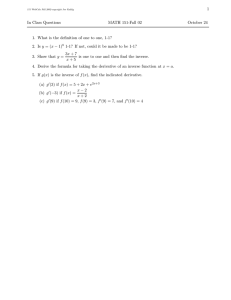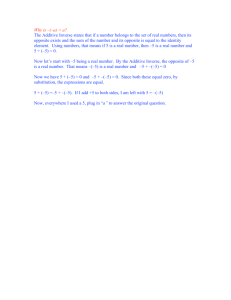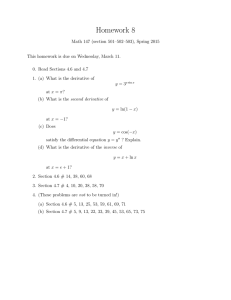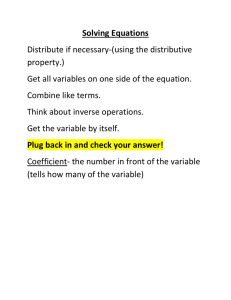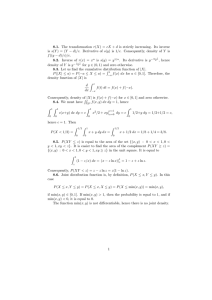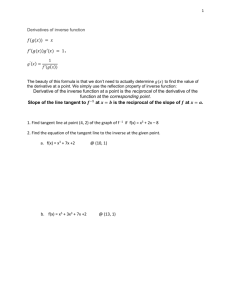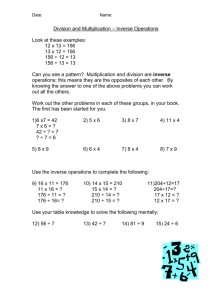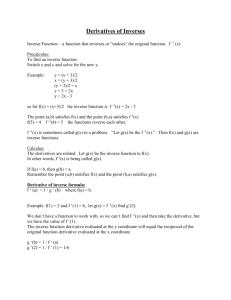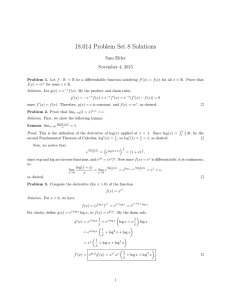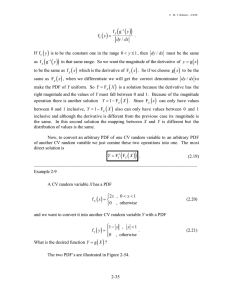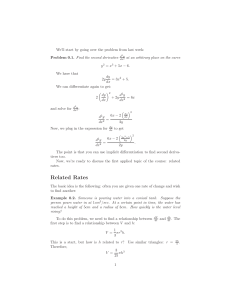1 In Class Questions MATH 151-Fall 02 October 24
advertisement
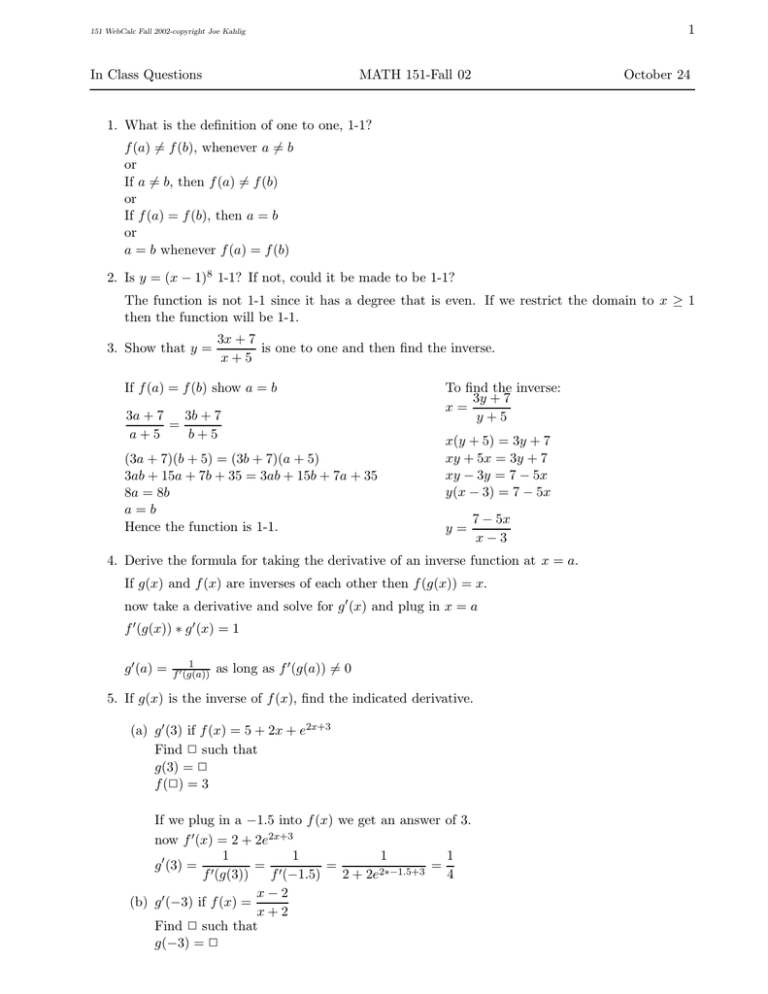
1 151 WebCalc Fall 2002-copyright Joe Kahlig In Class Questions MATH 151-Fall 02 October 24 1. What is the definition of one to one, 1-1? f (a) 6= f (b), whenever a 6= b or If a 6= b, then f (a) 6= f (b) or If f (a) = f (b), then a = b or a = b whenever f (a) = f (b) 2. Is y = (x − 1)8 1-1? If not, could it be made to be 1-1? The function is not 1-1 since it has a degree that is even. If we restrict the domain to x ≥ 1 then the function will be 1-1. 3. Show that y = 3x + 7 is one to one and then find the inverse. x+5 If f (a) = f (b) show a = b 3a + 7 3b + 7 = a+5 b+5 (3a + 7)(b + 5) = (3b + 7)(a + 5) 3ab + 15a + 7b + 35 = 3ab + 15b + 7a + 35 8a = 8b a=b Hence the function is 1-1. To find the inverse: 3y + 7 x= y+5 x(y + 5) = 3y + 7 xy + 5x = 3y + 7 xy − 3y = 7 − 5x y(x − 3) = 7 − 5x y= 7 − 5x x−3 4. Derive the formula for taking the derivative of an inverse function at x = a. If g(x) and f (x) are inverses of each other then f (g(x)) = x. now take a derivative and solve for g0 (x) and plug in x = a f 0 (g(x)) ∗ g0 (x) = 1 g0 (a) = 1 f 0 (g(a)) as long as f 0 (g(a)) 6= 0 5. If g(x) is the inverse of f (x), find the indicated derivative. (a) g0 (3) if f (x) = 5 + 2x + e2x+3 Find 2 such that g(3) = 2 f (2) = 3 If we plug in a −1.5 into f (x) we get an answer of 3. now f 0 (x) = 2 + 2e2x+3 1 1 1 1 g0 (3) = 0 = = 0 = 2∗−1.5+3 f (g(3)) f (−1.5) 2 + 2e 4 x − 2 (b) g0 (−3) if f (x) = x+2 Find 2 such that g(−3) = 2 151 WebCalc Fall 2002-copyright Joe Kahlig f (2) = −3 If we plug in a −1 into f (x) we get an answer of −3. x + 2 − (x − 2) now f 0 (x) = (x + 2)2 1 1 1 g0 (−3) = 0 = 0 = f (g(−3)) f (−1) 4 0 0 (c) g (9) if f (10) = 9, f (9) = 3, f (9) = 7, and f 0 (10) = 4 1 1 1 g0 (9) = 0 = 0 = f (g(9)) f (10) 4 2
